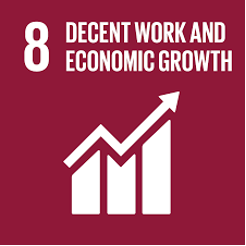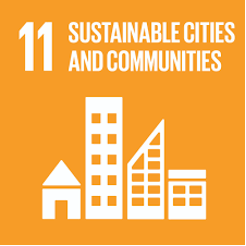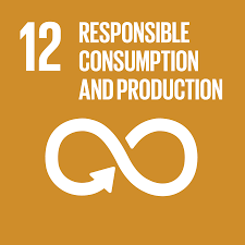Sustainability Research
Research at the RSB especially contributes to nine Sustainable Development Goals:
 |
Decent Work and Economic Growth: Research topics include corporate social responsibility (CSR) and corporate social performance (e.g., strategy, signaling, outcomes, and evaluation of CSR initiatives in different contexts) |
 |
Industry, Innovation, and Infrastructure: Research topics include sustainable supply chain networks. AI, blockchain, Green IS, and the role of tech in enabling sustainable and ethical practices |
 |
Reduced Inequalities: Research topics include social entrepreneurship, disability, stigma, affirmative action |
 |
Sustainable Cities and Communities: Research topics include the inefficiency of majority-rule voting in making siting decisions for noxious facilities |
 |
Responsible Consumption and Production: Research topics include sustainable consumer behavior and marketing (e.g., how consumers respond to sustainability in products, branding, and corporate messaging) |
 |
Climate Action: Research topics include emissions policies and operational responses to environmental challenges |
 |
Life on Land: Research topics include the intersection of biodiversity risk and bond credit ratings |
 |
Peace, Justice, and Strong Institutions: Research topics include stakeholder theory, ethical business practices, inclusive representation, and issues like affirmative action and social entrepreneurship |
 |
Partnerships for the Goals: Research topics include sustainable finance & ESG Metrics, green bonds, ESG investing, biodiversity risks, audit quality, and sustainability measurement tools |
Faculty Sustainability Research Spotlight
Daniel Gyung Paik & Joyce van der Laan Smith
In their study published in the Journal of International Accounting, Auditing and Taxation (2025), Drs. van der Laan Smith and Daniel Gyung Paik examine whether firms’ choice of both the timing of a consumer product recall and the type of remedy offered are influenced by their Corporate Social Performance (CSP). Using twelve years (2008 – 2019) of manufacturer product recalls issued by the U.S. Consumer Product Safety Commission, the agency responsible forensuring the safety of domestically produced and imported consumer products, and CSP data from KLD, their study provides evidence of an inverse relationship between CSP strength and proactive recalls suggesting that companies with stronger CSP delay recall announcements, mitigating the financial impact on shareholders. We find no significant relationship between firms with CSP concerns and proactive recall strategies. They also find that once a recall is initiated, firms with recognized CSP strengths provide a full remedy to consumers, repairing consumer trust. These results imply that firms with strong CSP make a balanced tradeoff between the interests of consumers and shareholders. Overall, these findings imply that CSP provides firms strategic flexibility in developing their response to product harm crises. Given the interconnected global economy, these results should be of interest not only to US regulators but also to other country regulators who work to ensure the safety of consumer products.
In their study published in the Journal of Business Research (2025), Drs. Aronson & Hanson build upon signaling theory to examine the unique CSR signaling of innovative organizations and the associated consumer perceptions, expectations, and outcomes. Archival data analysis reveals that high innovativeness organizations participate in more and distinct types of CSR signaling, compared to their less innovative counterparts. A theoretical framework integrating signaling and expectations theories explores whether the unique CSR signaling of innovative organizations aligns with consumer expectations and the associated outcomes. Two experimental studies demonstrate that consumers have heightened CSR signaling expectations for innovative brands, leading to greater purchase intentions when CSR practices and expectations align. A final study explores how multiple signals inform consumer expectations, specifically the interactive influence of a CEO transition signal. These findings yield insight into the unique CSR signaling of innovative organizations, the related consumer perceptions, expectations, and outcomes, and the importance of signal portfolio management to attain marketplace advantages.